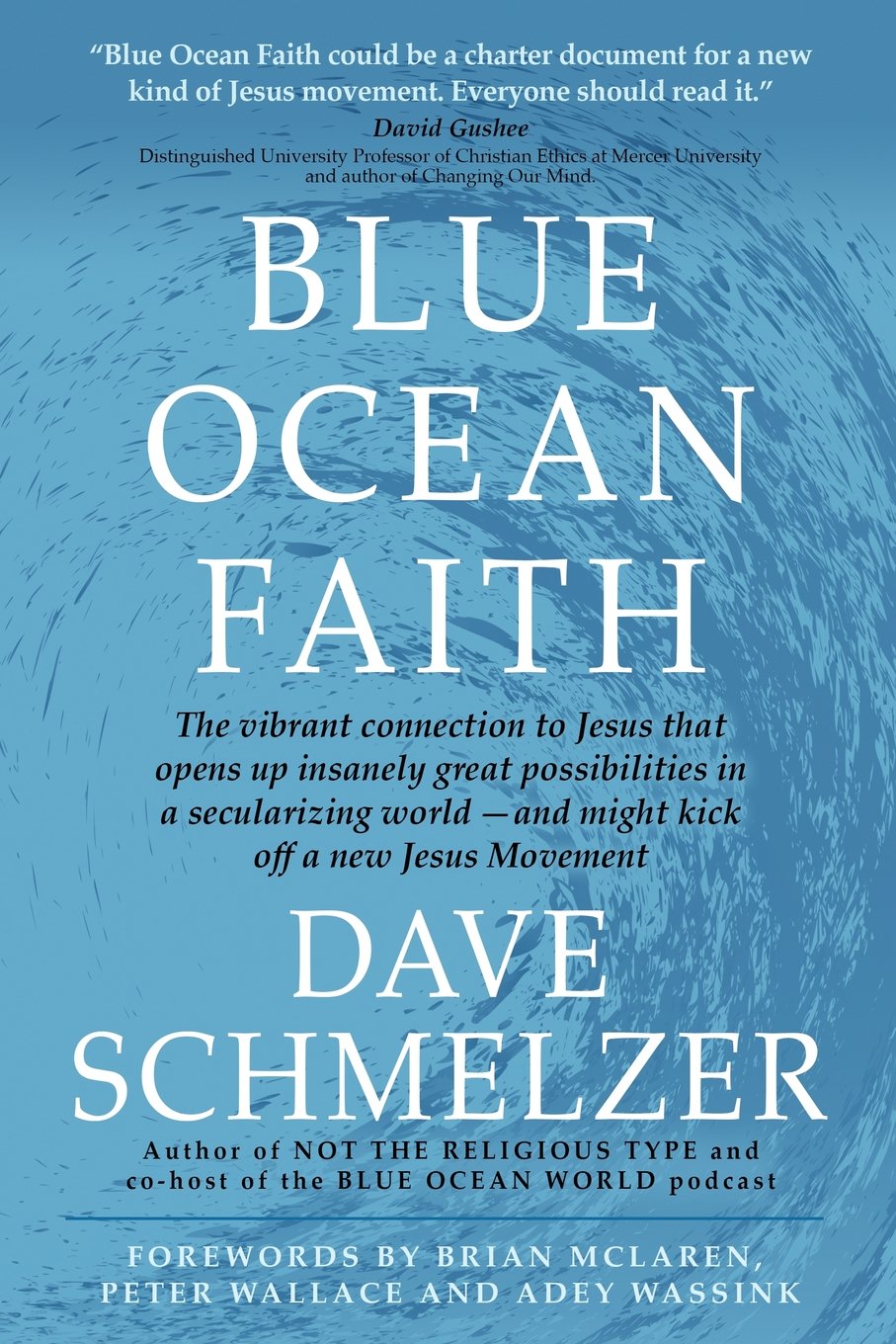 Dave Schmelzer has just published his book Blue Ocean Faith: The vibrant connection to Jesus that opens up insanely great possibilities in a secularizing world - and might kick off a new Jesus Movement and I have to say that I was thrilled when my copy arrived. I have been following the progress of the Blue Ocean Faith movement and hovering around it's edges for at least seven years or so now (you can find some of my musings on it HERE, I am graciously permitted to contribute to the Blue Ocean Companion Third Way Newsletter periodically, and have had one piece accepted by Blue Ocean's online magazine Hello Horatio - maybe I will get a chance to be on their podcast as well one day) and I have spent quite a few of them waiting for something like this. Blue Ocean Faith sets out, and expounds upon the the vision of Jesus-following which is at the core of their movement and, quite frankly, which has had a tremendous impact on my own life. Frankly, I am an unapologetic fan of Blue Ocean spirituality. So, while I was very much looking forward to this book, my anticipation did not come without plenty of anxiety: this project mattered to me so I was especially invested in having it go well.
Dave Schmelzer has just published his book Blue Ocean Faith: The vibrant connection to Jesus that opens up insanely great possibilities in a secularizing world - and might kick off a new Jesus Movement and I have to say that I was thrilled when my copy arrived. I have been following the progress of the Blue Ocean Faith movement and hovering around it's edges for at least seven years or so now (you can find some of my musings on it HERE, I am graciously permitted to contribute to the Blue Ocean Companion Third Way Newsletter periodically, and have had one piece accepted by Blue Ocean's online magazine Hello Horatio - maybe I will get a chance to be on their podcast as well one day) and I have spent quite a few of them waiting for something like this. Blue Ocean Faith sets out, and expounds upon the the vision of Jesus-following which is at the core of their movement and, quite frankly, which has had a tremendous impact on my own life. Frankly, I am an unapologetic fan of Blue Ocean spirituality. So, while I was very much looking forward to this book, my anticipation did not come without plenty of anxiety: this project mattered to me so I was especially invested in having it go well.I am not disappointed.
Per the book (and the movement's website) Blue Ocean Faith contains six theological distinctives:
- A "Solus Jesus" framework
- "Centered Set" as their primary metaphor
- Child-like faith as the path to spiritual development
- A "Third Way" approach to controversial issues
- Ecumenism
- Joyful engagement with culture.
The subtitle of the book is ambitious and I certainly don't know whether Blue Ocean Faith will ultimately succeed in its proposed ambition; I honestly can not presume to know what form Christian spirituality is going to take over the next few centuries. But after reading it, I am convinced that Blue Ocean faith has a chance.
Blue Ocean Faith presents the reader with an approach to spirituality and life which is both profoundly meaningful, and winsome. Each chapter confronts you with a sense of joy and possibility. Beyond the distinctives above (which Schmelzer uses to organize the book) the major themes in this book are Schmelzer's deep commitment to Jesus Christ, and his abiding delight in the world he is in. In his own words about the origins of the "Blue Ocean conversation":
We found ourselves having increasingly robust conversations with a lot of churches in very non-churchgoing parts of the world. This was the consistent feedback we were getting: their best sales-pitch to everyone, non-churchgoers and churchgoers alike, was that the actual, living , communicative Jesus was awesome. "There was no shadow of turning in him" —it was all good news.
 |
| Schmelzer seems to think that Jesus really likes you. |
In terms of the writing and style, Blue Ocean Faith is an eminently readable and easily digestible book (if you have made it this far into the review, you will have absolutely no problem with the book itself—Dave writes with an easy, conversational, style I can only dream of). The organization is clear, each chapter builds on the one before without becoming at all repetitive, and the logic of the concept builds neatly—each one of those distinctives harmonizes with the others.
I would cheerfully recommend this book to just about anyone, but I think that in a lot of ways this book will be appreciated by the spiritually homeless, by ex-evangelicals who have been hurt by the church, by spiritually curious secular and agnostic folk, and by all of those restless young Christians who find themselves searching for a Jesus-obsessed community which is committed to diversity, inclusion, political nuance (neither beholden to politics nor removed from reality), and being comprehensible to anyone. It is the sort of book that, having read, you will want to buy for your friends; I have already ordered a second copy for one friend and will likely order several more.
No comments:
Post a Comment